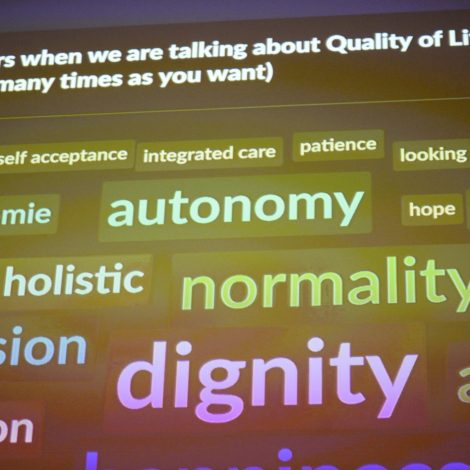Survey Gathers Support Needs of Cushing’s Syndrome Patients in U.S., Germany
Written by |

Competent physicians and long-term medical care are the types of support that most help patients with Cushing’s syndrome cope with their condition, a patient-reported survey in the U.S. and Germany shows.
U.S. and German patients, however, had different interests regarding other supportive measures, underlining that programs to aid in patient self-management should be adapted to cultural preferences.
The study, “Support Needs of Patients with Cushing’s Disease and Cushing’s Syndrome: Results of a Survey Conducted in Germany and the USA,” was published in the International Journal of Endocrinology.
First-line treatment for Cushing’s syndrome includes surgical removal of the tumor for those with tumor-derived disease, and lowering or discontinuing corticosteroids in people with medication-related Cushing’s. When such interventions cannot bring cortisol levels down to normal, other therapies may be employed.
However, these treatments often lower cortisol levels too much (hypocortisolism), requiring additional therapeutic interventions such as hydrocortisone replacement therapy, exposing patients to potential life-threatening side effects such as an acute failure of the adrenal gland (Addisonian crisis).
Thus, Cushing’s disorders “may not be easily cured and have long-term effects on patients’ health, appearance, well-being, and quality of life” researchers stated. This has led to new models of care “in which patients move from a passive role as healthcare recipients toward an active role as equally important partners in the management of their illness.”
Given the increasing awareness that more support apart from medical interventions should be provided to chronically ill patients, the study sought to gather the personal assessments of Cushing’s syndrome patients about unmet support needs they would like to see addressed.
Led by researchers with the University of Duisburg-Essen in Germany and the Cushing’s Support and Research Foundation (CSRF) in the U.S., a team of scientists surveyed patients in both countries about the disease burden, coping strategies, and support needs. Other educational and training offers, including internet-based programs and seminars, were also discussed.
The cross-sectional survey included 84 patients with Cushing’s disease referred to German tertiary care centers and 71 patients with Cushing’s syndrome belonging to the U.S. patient support group CSRF.
Patients said that symptoms, reduced performance, and psychological problems were the aspects of the disease that bothered them most. U.S. patients also complained about the long time it took to reach a diagnosis.
According to patients, having good medical care and being managed by competent doctors helped them most (48.8% in the U.S.; 44.4% in Germany), followed by the support of family and friends and religion (36.9% in U.S.; 31.7% in Germany).
U.S. patients stressed that sharing experiences with fellow patients and getting information about the disease helped them cope, while German patients gave more importance to practicing sports and hobbies and accepting their condition as coping strategies.
American patients preferred to participate in support groups, attend courses on coping, and have their families take part in educational activities; German patients favored getting information through leaflets or brochures.
Most patients said they would like to see supportive programs addressing the topic of communication with others. Many also would welcome more information and support regarding relaxation techniques, nutritional advice, stress management, exercise, health care bureaucracy, financial issues, and strategies to cope with daily challenges. Stress management was particularly of interest to U.S. patients.
The majority of patients in both countries — 89.3% in the U.S. and 75.4% in Germany — were willing to take part in internet-based programs.
The results highlight the fact that “culture-specific training programs would need to be considered to satisfy the needs of patients in different countries” and underline the importance of patient support groups.
These programs also should focus “on the time before and the first year after treatment, which, due to the sudden cortisol deprivation, is severely stressful for the patient,” researchers said.





